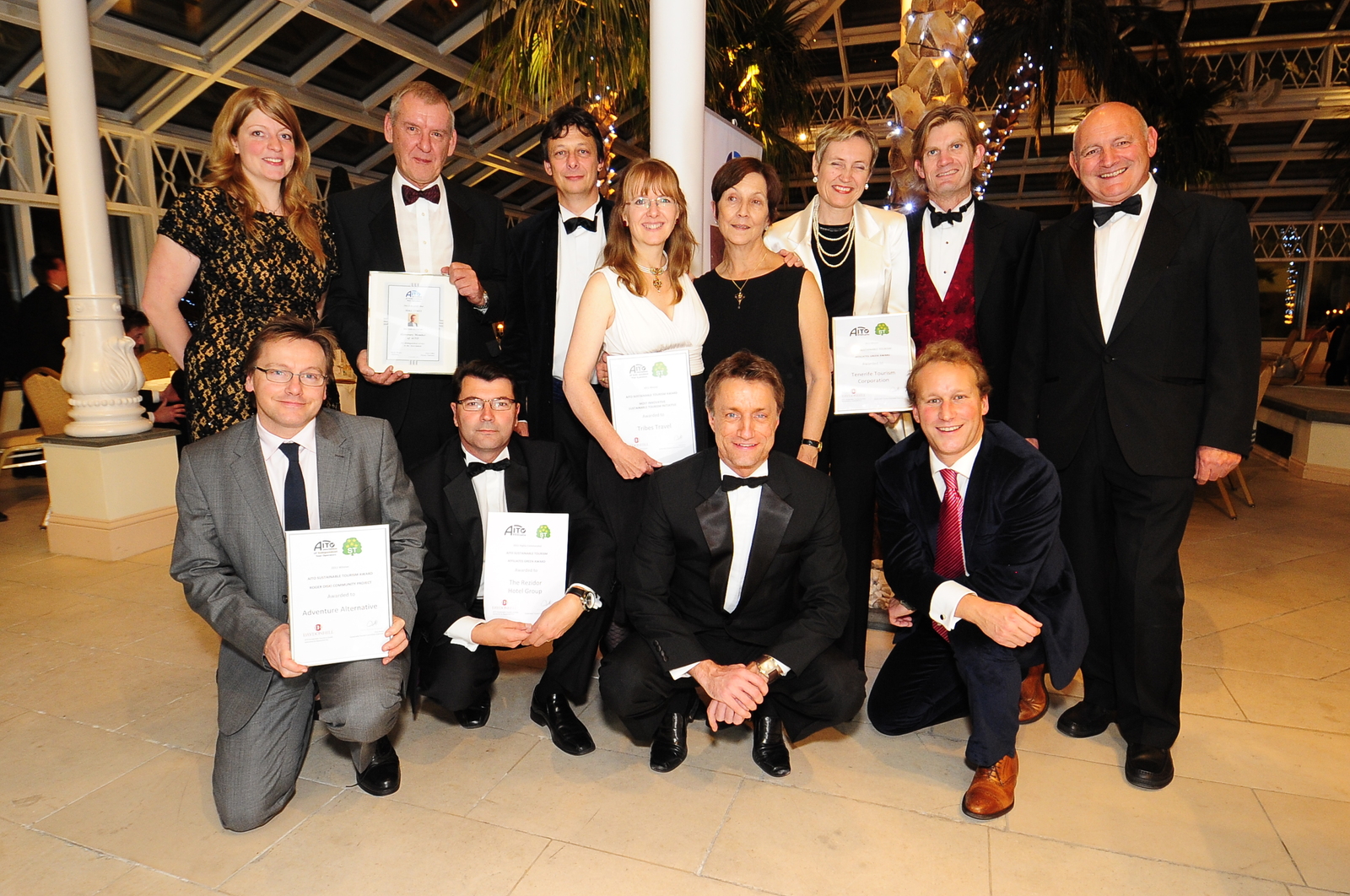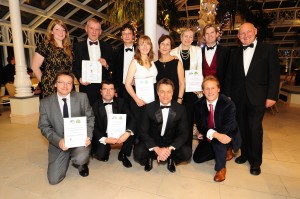I have just come back from the annual expedition to the World Travel Market in London, one of the biggest travel trade events in the world with countries selling their treasured possessions, be they natural, cultural or unapologetically artificial, to those who want to buy. It is an overwhelming event, a place where our long awaited holiday or wanderlust wishlist becomes a mere ‘product’, or something which ‘adds value’ to a ‘destination’. It highlights the fact that tourism is a massive industry, still one of the biggest in the world. An industry where people, who for me are central to a truly responsible and fair tourism venture, are referred to as stakeholders. Which sounds a bit like ‘spear carriers’ on stage – Irrelevant players who stand at the back and only move when told to.
There is at least one event at the World Travel Market where people are put centre stage – World Responsible Tourism Day with its affiliated Responsible Tourism Awards. Set up in 2004 by responsibletravel.com it started off in a quiet corner of this vast market place, quietly handing out Responsible Tourism Awards to people who were doing extraordinary work on the fringes. It is now a rock ‘n roll event, with flashing lights and music, major international sponsors for each category, including Virgin Holidays as its key sponsor. One thing that hasn’t changed, however, is the focus on individual achievement.
The Awards are divided into categories, and the nature of the award winners varies greatly, from slums to sumptuous resorts. Do also check out those who were highly commended, because their stories are ones which will get your feet itching and hopefully travelling in an increasingly responsible way. Because the minute I walk out of the Awards and back into the mainstream marketing and bartering of travel products all around, the majority of which still have no intention of putting ethics before profits, I realise this effort to create change is one worth celebrating through all our travel choices. Choices which also, hopefully, provide you with the most fulfilling and exciting holidays ever.
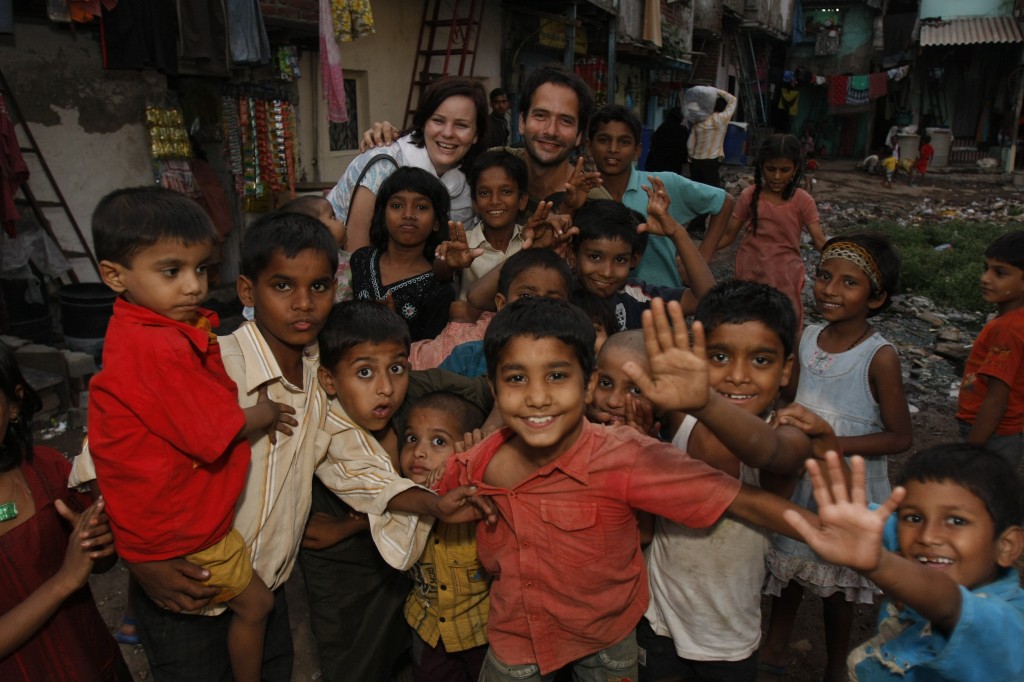
Best for poverty reduction (and Overall Winner)
Winner: Reality Tours and Travel, Mumbai, India
As well as winning this category, Reality Tours and Travel won the Overall Award for Responsible Tourism at the awards this year, to highlight the huge achievements of working in this difficult and controversial area of tourism. Established in 2005, they offer city and village tours in Mumbai and beyond, and this Award is for their educational Dharavi Slum Tours. Aware that many have mixed feelings about slum tours, Reality Tours aims to take an educational look at the strengths, opportunities, challenges and issues of life in the Dharavi community.
They donate 80% of post-tax profits to their sister NGO, Reality Gives. Reality Gives provides educational programmes for residents of Dharavi, and supports a number of micro-enterprise and community initiatives including sports, beekeeping, and youth empowerment programmes.
Among the success stories the company is able to lay claim to is that of Kaveri, who participated in their Youth Empowerment Program in 2011. A resident of Dharavi all her life, she had been a school drop-out. Although she had been unable to afford the course deposit of Rs500, which is charged to ensure attendance and reimbursed upon successful completion of the programme, Krishna, Reality’s co-Founder paid Kaveri’s deposit as he believed in her enthusiasm and willingness to succeed. In May of this year Kaveri joined Youth Career Initiative’s Hotel Management Programme and is now training at the Four Seasons in Mumbai.
Best accommodation for local communities
Winner: Soria Moria Boutique Hotel, Siem Riep near Angkor Wat, Cambodia
Soria Moria Boutique Hotel is named after the Norwegian fairytale Soria Moria Castle, which is often interpreted as being about individual paths to perfect happiness. For its employees, fairytales can come true, as its exemplary employee training programme supports staff from entry level jobs right up to management positions. Which may seem like the norm to me or you, but is still worryingly rare in tourism. For example, General Manager Sam Sokha started out as a dishwasher at Norwegian owner Kristin Holdø Hansen’s first guesthouse. The only English she knew was how to introduce herself. With the support of the Soria Moria Employee Elevator programme she is now studying for her Masters in Business Administration (MBA). All the hotel’s employees are local, including management positions, and by their innovative Employee Ownership Scheme they have also become partners and majority owners in the business with 51% of the shares.
Highly Commended:
La Villa Bethany (India)
Bulungula Lodge (South Africa)
Best accommodation for the environment
Winner: Song Saa Private Island , Cambodia
Located in the Koh Rong archipelago in Cambodia, the luxurious Song Saa Private Island has 27 stunning villas that deliver on style, intimacy and picture perfect surroundings. Beauty isn’t just skin deep at Song Saa though, as its thorough and holistic approach to conservation sets it apart. Song Saa was instrumental in the foundation of Cambodia’s first marine reserve, they have created artificial reef structures to support the rehabilitation of coral, and built nestboxes to encourage hornbill conservation. Their Sala Song Saa School provides environmental and agricultural education for local people and youth training on organic soil husbandry.
Highly commended:
Bohinj Park Eco Hotel, Slovenia
Maliba Mountain Lodge, Lesotho
Best carbon reduction initiative
Winner: Sawadee Reizen
The Dutch small group adventure tours company Sawadee Reizen has identified that changing to direct “point-to-point” flights is the most effective way of reducing the carbon footprint of trips, resulting in a reduction in carbon emissions by an average of 10%.
Highly commended:
Beechenhill Farm, UK (beechenhill.co.uk)
ITC Sonar, India:
Best destination for conserving architectural heritage
Winner: St Kilda, Scotland
The St Kilda islands were abandoned in 1930 by the remaining 36 islanders when life on St Kilda became unsustainable and the buildings rapidly fell into disrepair. Between 2008 and 2010 the National Trust for Scotland carried out a sympathetic restoration and you can still participate in this by joining one of their work parties in May and June, if you can face the eight hour boat journey from the Western Isles alone. Work party members get stuck into repairing stone walls, repairing turf roofs, clearing drains and repainting.
The judges saw the National Trust for Scotland’s work in St Kilda, the UK’s only mixed World Heritage site, important to both the cultural and natural heritage of the World, as a good example of the contribution which tourism can make to the maintenance of built cultural heritage in remote areas.
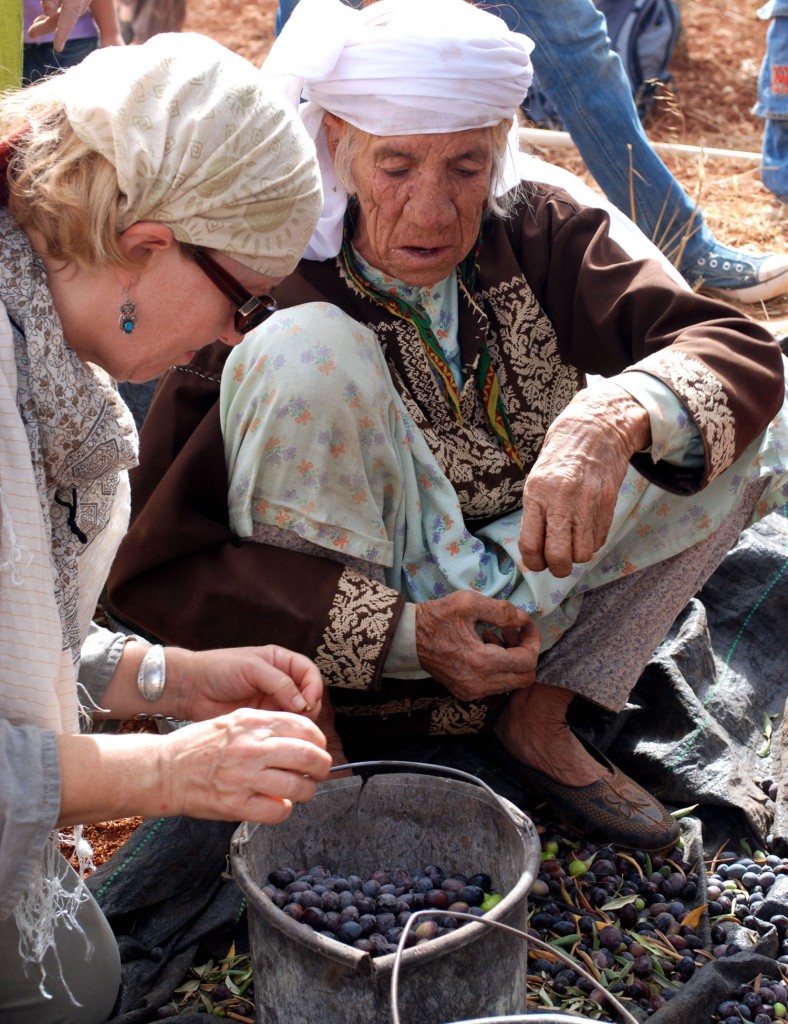
Best engagement with people and cultures
Winner: South Nottingham College in Partnership with The Institute of Travel and Tourism of The Gambia
About the winner: The South Nottingham College of Travel and Tourism curriculum team worked in partnership with local people to set up and run a vocational tourism education institute within the Gambia. This was staffed by Gambian students who were sponsored to study at the college in Nottingham, who subsequently returned to Gambia with the skills to train others.
Highly commended:
Uptuyu Adentures: uptuyu.com.au
Palestinian Center for Rapprochement between People – The Siraj Center, Palestine: sirajcenter.org
Best for conservation of wildlife and habitats
Winner: Huilo Huilo Biological Reserve, Chile
About the winner: Since 2000 the Huilo Huilo Biological Reserve has conserved over 100,000 hectares of Patagonian temperate rainforest. The owners have changed the way in which they, and the local community, secure a living from this large piece of Patagonian forest, moving from logging to conservation and sustainable tourism.
Best in a marine environment
Winner: Moonraker Dolphin Swims, Australia
About the winner: Moonraker Dolphin Swims offer the opportunity to swim with wild Burranan Dolphins and Australian Fur Seals, whilst taking steps to ensure the dolphins do not become habituated and remain truly wild. Port Philip Bay in Victoria is one of Australia’s last remaining homes for this genetically unique family of dolphins. They are wholly committed to monitoring the populations and their health, as well as practising strict interaction rules.
Highly commended:
blue o two, UK: blueotwo.com
Best in a mountain environment
Winner: 3 Sisters Adventure Trekking
About the winner: Owned and run by the Chheti sisters, 3 Sisters Adventure Trekking train and employ women as high-altitude guides and porters, a break from tradition in the male-dominated Nepalese trekking industry. Employment means empowerment for women in the impoverished west of Nepal, their wages can lift whole families out of poverty and allow the women themselves to continue their education, a rare opportunity in a country where, according to UNESCO, just 2% of female school leavers go on to university.
Along with their sister organisation Empowering Women of Nepal (EWN) a local grassroots non-profit organization, they are working to gain gender equality, the elimination of child labour, peace and responsible economic development. The judges were impressed by their work to empower women and by their success in combining business and social goals. So, if you are a woman trekker, and would love to have a woman guiding you, check them out. Their ethos is well summed up by the sisters who say “We do not bring stop watches in our back packs, we bring time… time to stop and smell the mountain flowers, watch the monkeys play, the eagles soar, time to really enjoy all the sights and sounds of a foreign land”. Go girls.
Highly commended:
EcoCamp Patagonia, Chile (ecocamp.travel)
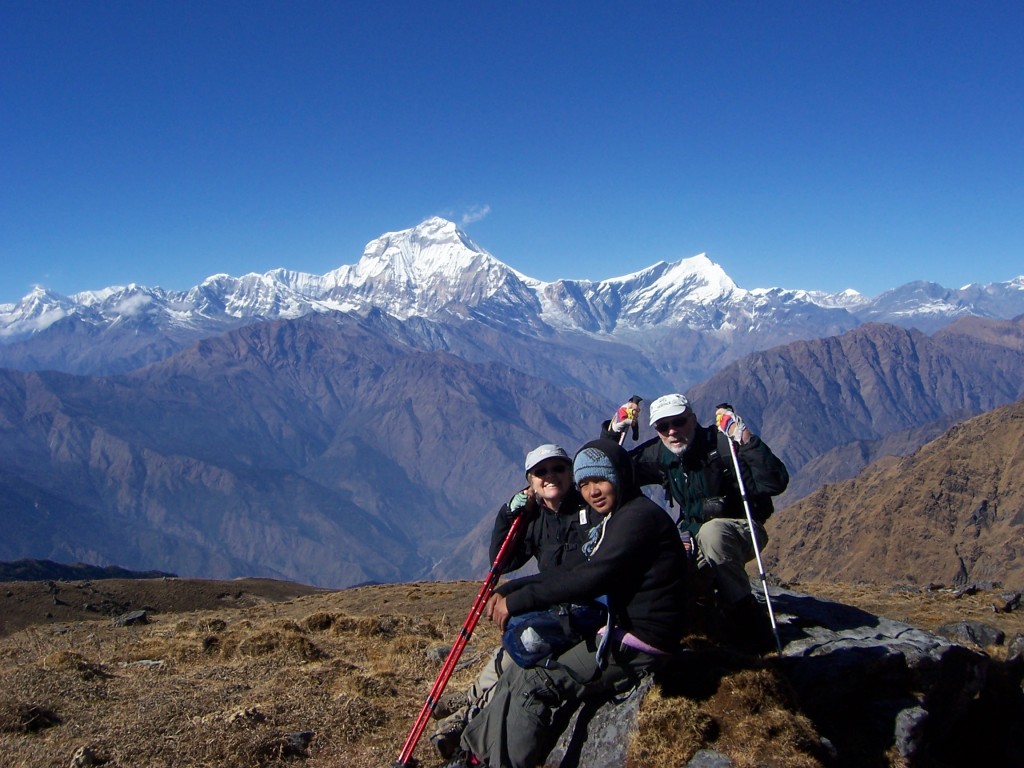
Best in responsible transport
Joint winners: Big Lemon Bus Company, UK and Green Tomato Cars, UK and Australia
This year the judges decided to award two winners in this category, partly because there were a number of strong nominations this year, but also to reflect the importance of taking responsibility for reducing carbon emissions in all kinds of transport. Based in Brighton in UK, all of the Big Lemon Bus Company’s vehicles run on biodiesel from locally-sourced waste cooking oil. And London and Sydney-based Green Tomato Cars use low emitting vehicles, so customers can be confident that they are getting from A to B in the greenest way possible short of using public transport, cycling or walking.
Highly commended:
Grand Canyon Railway: (thetrain.com)
The New Forest Tour (thenewforesttour.info)
Best innovation
Winner: The Nature Observatorio Amazing Treehouse, Costa Rica
The Nature Observatorio Amazing Treehouse is suspended in the canopy of a Nispero tree, 25m above the forest floor. The Treehouse is, according to designer and developer Peter Garcar, just a guest of the tree for 5 to 7 years, and great care is taken to ensure that when the tree house is removed there will be no trace of it ever having been there. Income from paying guests is used to fund the purchase further forest, which is placed under protection. Peter hopes to take the concept worldwide to demonstrate that a living tree is more valuable than a dead one. The judges were particularly interested in the innovative fractional ownership, whereby an additional 500 square metres of forest is set aside on behalf of every tourist booking a week over 5 years.
Best tour operator for promoting responsible tourism
Winner: Explore
For Explore, Responsible Tourism is a commercial decision, not just an ethical one. By operating responsibly they believe their customers will have a better experience. The judges were impressed by how they engage travellers in their Responsible Tourism approach. Their Responsible Tourism pages give information to customers about how they can make their trips more responsible both before and during their trip, as well as when they return home and their multi-award winning status show that they certainly practice what they preach.
Highly commended:
Biosphere Expeditions: biosphere-expeditions.org
Best in responsible tourism writing
Winner: Emma Thomson for At Home With the Himba, pubished in Wanderlust Magazine
The judges particularly liked Emma Thomson’s account of her homestay with the Himba and the makeover she had while dressed as a Himba woman. A colourful and engaging piece without being preachy, the article explains why this more responsible form of tourism makes such a better tourist experience. On the day before she leaves she is ogled by some tourists, and to quote from her article “for a brief moment, I catch a glimpse of life on the other side of the fence.”
Highly commended:
In Search of an Alternative Palestine by Gail Simmons
Salt of the Earth by Caroline Eden
Best volunteering organisation
Winner: Elephant Human Relations Aid
Elephant Human Relations Aid focuses its activities on the conflict between the desert elephants of Namibia and local communities, caused by elephants damaging vital water points. Their short-term volunteer teams strengthen water points so they can be used by both humans and elephants without getting damaged.

